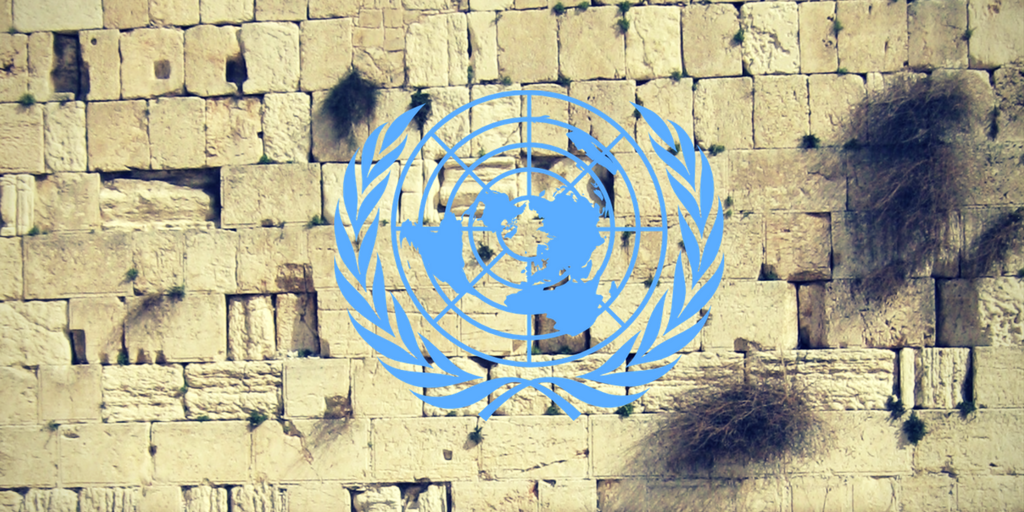The time has come for the “Right” to “bite the bullet” & give up trying to advance convoluted political prescriptions in lieu of the two-state formula. It is time to identify the Palestinian-Arabs as the enemy
The goal of our struggle is the end of Israel, and there can be no compromises…the goal of this violence is the elimination of Zionism from Palestine in all its political, economic and military aspects…We don’t want peace, we want victory. Peace for us means Israel’s destruction and nothing else —Yasser Arafat – 1970, 23 years before the signing of the Oslo Accords
The PLO will now concentrate on splitting Israel psychologically into two camps…We plan to eliminate the State of Israel and establish a Palestinian state. We will make life unbearable for Jews by psychological warfare and population explosion. Jews will not want to live among Arabs. I have no use for Jews. They are and remain Jews –Yasser Arafat – 1996, 3 years after the signing of the Oslo Accords
The Arabs are [the same]Arabs … the sea is the same sea, and the aim is the same aim: extermination of the State of Israel – even if you call it ‘self-determination.’– Yitzhak Shamir, 1989
In my column last week, I made the case for Israel to identify the Palestinian-Arab collective for what it openly admits itself to be—an implacable enemy, not a prospective peace partner—and urged that it to formulate policy commensurate with this diagnosis.
Hardly a hapless victim
In this regard, I underscored that it is imperative to keep in mind that, while there are certainly many Palestinian-Arabs with fine personal qualities, the Palestinian-Arab collective is not the hapless victim of radical terror groups.
Quite the opposite.
It is, in fact, the societal crucible in which they were forged, and from which they emerged. Its leadership is a reflection of, not an imposition on, Palestinian-Arab society.
Corroboration for this dour appraisal is provided (probably unintentionally) by the European Council for Foreign Relations’ Senior Policy Fellow Nick Witney, hardly an avid pro-Israel hardliner, who aptly describes the affinity that the general Palestinian-Arab population has for Hamas, an internationally designated terror organization: “Hamas…can claim more popular legitimacy than the IRA ever could. It was, after all, chosen by the people of Gaza to govern them the last time they were able to express their views through the ballot box, in 2006 – an election which, indeed, delivered a plurality of votes for Hamas across the occupied territories.”
Regrettably, this is a reality that many seem reluctant to acknowledge—even otherwise astute scholars, who appear acutely aware of the deeply flawed nature of the current Palestinian leadership—and even more of the grave defects of the Oslowian peace process that brought them to power.
Reluctance to recognize reality
This reluctance to recognize that innate hostility towards the Jewish state is a societal characteristic of the Palestinian-Arab public (which engenders its Judeophobic leadership), expresses itself in two broad categories of policy proposals ,
The first of these categories involves waiting for some alternative, more amenable leadership to emerge—by means of some unspecified chain of events—that will have both the requisite pliancy and authority to conclude a lasting accord with Israel—the pliancy to accept Israeli conditions, and the authority to induce the Palestinian-Arab public to accept them.
The second category involves prescriptions for dissolving the current leadership, dismantling the mechanisms of its administration and incorporating the Palestinian-Arab residents into the permanent population of Israel under Israeli governance, typically invoking some—usually unspecified—process towards their eventual full or partial enfranchisement as citizens of the country.
Neither of these two alternative proposals have any real empirical evidence to support their feasibility or theoretical reasoning to underpin their plausibility.
To the contrary, most of the available data and reasoned conjecture would seem to negate any merit in such formulae.
“Palestinians cursed with incompetent, corrupt leaders…”
Two recently published articles illustrate the logical flaws in proposals of the first category.
One was a piece that appeared in “The Forward”, “How Aid To Palestinians Hurts — Not Helps — The Peace Process”, authored by Asaf Romirowsky, executive director of Scholars for Peace in the Middle East and Alex Joffe of the Middle East Forum. (Clearly, neither of the organizations with which the authors are associated endorses anything approaching the kind of extreme concessionary dogma promoted by radical left-leaning groups such as J-Street.)
The other was a piece posted by political analyst, Daniel Krygier , entitled Time to demand the Palestinian Authority’s unconditional surrender, which in itself tends to reveal the author’s hawkish predilections.
In their article, Romirowsky and Joffe cogently call for cutting funding to the United Nations Relief and Works Agency (UNRWA) that perpetuates the deceptive and detrimental fiction of Palestinian refugees and convincingly explains why continuing such funding is likely to sustain—rather than curtail—the conflict. (I have advocated much the same for over a decade.)
Accordingly, I found myself agreeing with virtually everything they wrote—until the last paragraph.
In it, they assert: “Palestinians are… cursed with incompetent and corrupt leaders whose fantasies, violence and rejectionism have been a disaster since the 1920s… Replacing their leaders is a vital next step to reforming the Palestinian Authority and making real progress toward creating a state that treats Palestinians with decency, not as refugees but as citizens, and one that is capable of living in peace alongside Israel.”
Leadership a reflection of, not an imposition on, Palestinian society
In his article, Daniel Krygier takes a similar line.
After vividly cataloging the years of nefarious malfeasance of the Palestinian leadership, in his concluding paragraph, he writes: “The time has come for Israel and America to demand an unconditional surrender of the PA and replace it with a new Arab leadership committed to genuine peace and progress.”
This of course immediately raises a number of trenchant questions.
Firstly, if the Palestinian-Arabs have been saddled with “incompetent and corrupt leaders” for almost a century, why have they not cast them off and replaced them with leaders less incompetent and corrupt? After all, history is replete with examples in which people threw off the rule of regimes far more onerous and entrenched than that with which the Palestinian-Arabs are purportedly burdened. So why have the Palestinian-Arabs not even made a feeble attempt in this regard? Indeed, when they were given the chance to determine their leadership they elected…Hamas.
So could it be that, as I argued last week, the kind of leadership the Palestinian-Arabs have had over the past decades is not an unwanted imposition on them, but merely a reflection of their society, of their societal choices and their societal values.
Delusion that two-statism can be fixed
Moreover, when Romirowsky, Joffe and Krygier called for reforming and replacing the Palestinian leadership, who is supposed to do the reforming and the replacing? And how is this to be done? If it is the Palestinian-Arabs themselves who are supposed to do it, what reason to believe that they will do now what they have not done “since the 1920s”?
If the intention is that others do the reforming and replacing, how are these reformers/replacers to be selected? And how are their actions/decisions to be legitimized by the Palestinian public—never mind accepted by any surviving replaced leader?
At the root of this flawed thinking is the belief –even by those who excoriate the Palestinians—that the two-state paradigm can still be fixed- and need not be nixed.
This is a dangerous delusion. For, although it is perhaps conceivable that in the next hundred years, the Palestinian- Arabs could morph into something they have not been for the last hundred years, there is very little—empirically or theoretically—to support such forlorn hope. Moreover, even if this unlikely metamorphosis does materialize, it is likely to take many years, even decades, to come about.
Accordingly, it would appear wildly irresponsible to adopt, as the basis for the current formulation of long-term national strategy, a scenario that is both highly improbable, and is only likely to occur, if at all, in the distant future.
In the meantime, prevailing problems must be addressed and far more plausible possibilities dealt with —like how to contend with a Palestinian leadership that remains un-replaced and unreformed –and just as inimical as it is today.
Lebanonizing Israel
This brings us to the second category of policy prescriptions.
These do not focus on any future reformation/replacement of Palestinian leadership, but on dissolving the current leadership, dismantling the mechanisms of its administration and incorporating the Palestinian-Arab residents into the permanent population of Israel, under Israeli governance.
This is an approach founded on the wildly optimistic (the less charitable might say irresponsible) belief that Israel could forge a coherent and cohesive society with two roughly equal, disparate and largely rivalrous ethnic groups with irreconcilable mutually exclusive defining narratives. Proponents of this view base their credo on demographic assessments that if Israel were to annex the territories of Judea-Samaria, it would still retain a 60-65% Jewish majority –which clearly means an initial 35-40% Muslim minority.
Relying on this assessment (which, generally, I do not dispute), “Right-wing” one-staters typically suggest that some kind of process of enfranchisement would be instituted over time to allow the annexed Palestinian-Arabs full or partial political rights. One of the first, and arguably the most prominent, proponents of this idea from the ranks of the “Right”, was Caroline Glick in her “The Israeli Solution: A One-State Plan for Peace in the Middle East”.
However, this would, in effect, comprise an almost certain recipe for the Lebanonization of Israeli society. Indeed, I have warned repeatedly how devastating this would be for Israel in terms of the socio-cultural and economic fabric of the country—despite the initial electoral arithmetic—pointing out how/why a process of demographic dynamics could kick in to erode any Jewish majority —see for example here; here; here; here; and here .
Lebanonizing (cont.)
Last week a new article appeared advancing this notion , by Michael Wise, a veteran “Right-wing proponent of “one-statism”.
Entitled One Jewish Democratic State, it proposes that when“… Israel declares sovereignty over all of Judea and Samaria, it should grant immediate universal citizenship to the Arab residents of the West Bank — but only when regional peace breaks out. Jihad and suicide bombings must end, and Muslim leaders and groups must stop lauding violence. And Arab leaders, in both Israel and the region, must recognize Israel as a Jewish state”.
Wise continues, suggesting the restoration of the old and discredited idea of “autonomy”: “In the interim, Arab residents of the West Bank will have full civil and religious rights. They will autonomously manage their municipal affairs, and democratically elect their local leadership — but should not participate in national elections. Clearly, as long as Hamas and Fatah seek Israel’s destruction — and as long as global Islamic violence continues — one cannot expect that Israel would be suicidal and risk giving national voting rights to a population that wants to undermine its very existence.”
This is a blatant prescription for an “apartheid state”, in which large segments of the permanent population are denied political rights on the basis of ethnicity. It raises a myriad of thorny questions.
Here are a just few:
Is Wise seriously suggesting that Israel condition the political rights of members of its permanent population on the behavior of outside governments and organizations, over which they have no control? Would continuing violence against Israel, instigated by foreign countries, be grounds for precluding the political rights of Arab residents—or stripping them of such rights, should violence flare after they were granted?
And if it would be suicidal for Israel to “giv[e] national voting rights to a population that wants to undermine its very existence”, how much less “suicidal” would it be to sustain that population by providing it with water, electricity, fuel, education, and unrestricted freedom of movement throughout the country—shopping malls, beaches and all?
Time for the “Right” to the bite the bullet
The time has come for the “Right” to “bite the bullet” and give up trying to produce all sorts of convoluted political prescriptions in lieu of the two-state formula—that propose replacing Palestinian leaders, reforming Palestinian governance or co-opting Palestinian residents. It is time to identify the Palestinians for what they are and for what they claim to be–not prospective peace partners but implacable enemies–and to formulate policy prescriptions that treat them accordingly.






